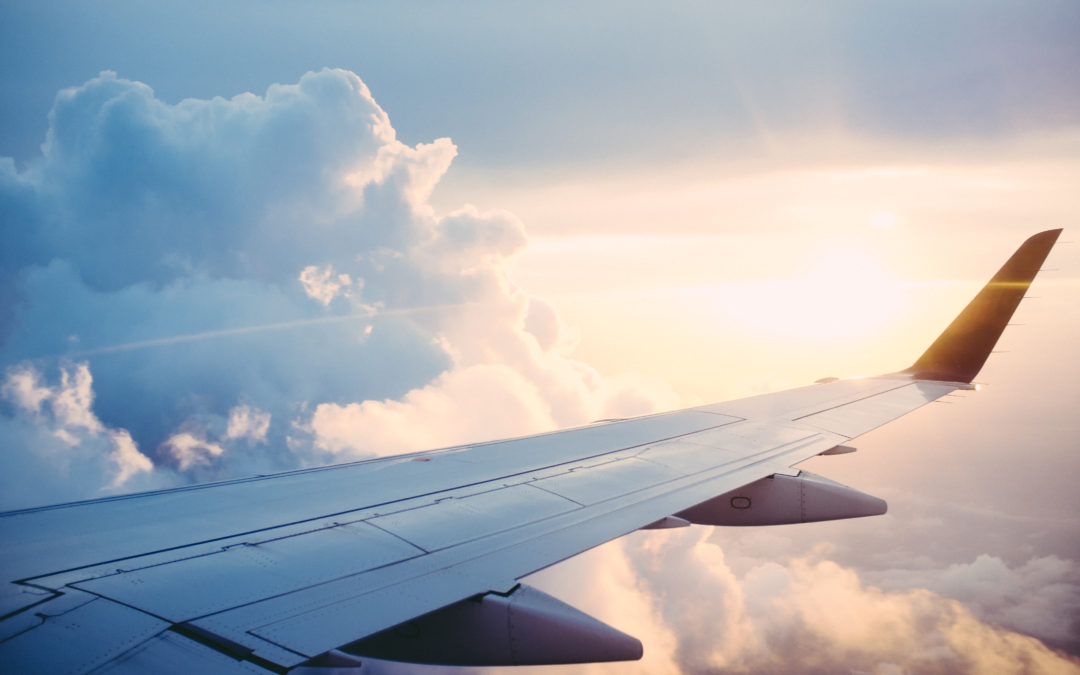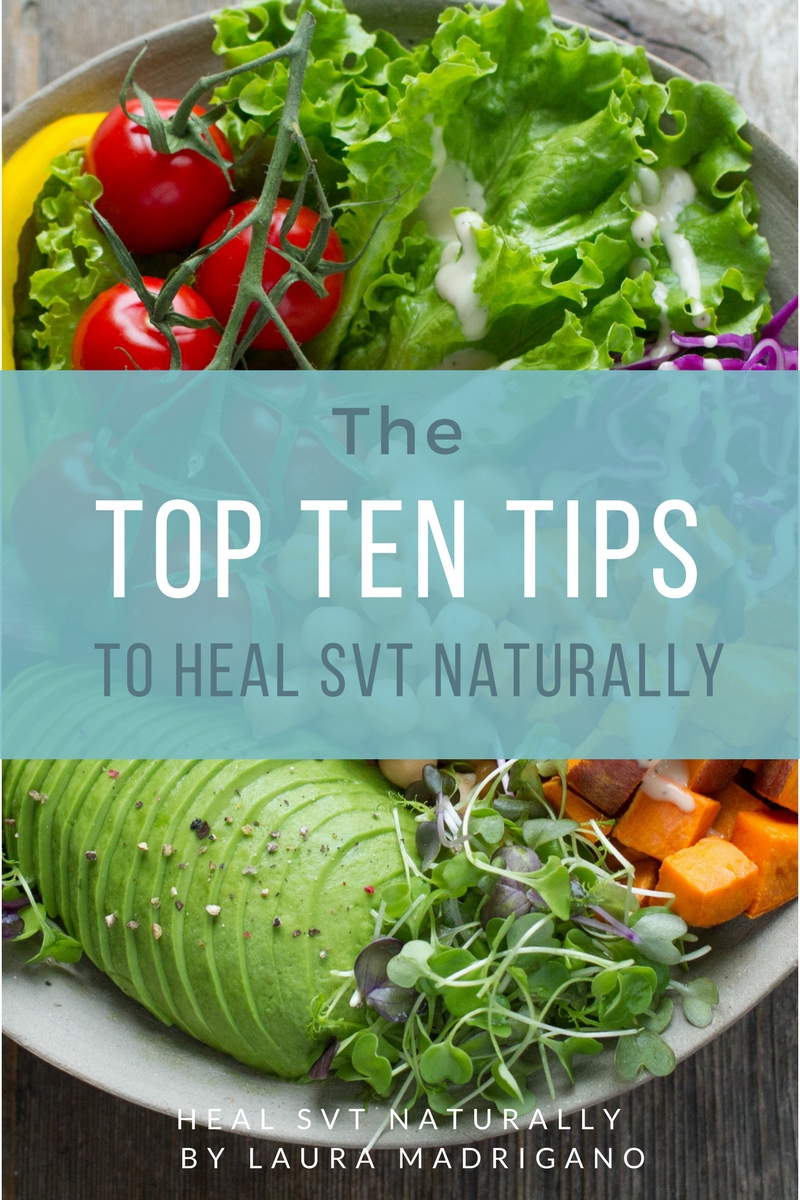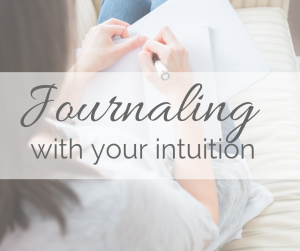A tricky side effect of SVT is that many of us become afraid to travel…All the what if’s pile up and we become overwhelmed with fear….If you decide to travel here are some tips to help support you before, during and after…
 1. Try to book a flight during normal daytime hours….Not one where you will dig into your normal sleep routine super early in the morn or late at night. As we know proper sleep is essential to avoid an SVT. If you are traveling abroad usually the flights are during the night so this can damage your sleep, especially if you cant sleep on a flight…So other than traveling to Europe etc…try to fly at normal times during the day.
1. Try to book a flight during normal daytime hours….Not one where you will dig into your normal sleep routine super early in the morn or late at night. As we know proper sleep is essential to avoid an SVT. If you are traveling abroad usually the flights are during the night so this can damage your sleep, especially if you cant sleep on a flight…So other than traveling to Europe etc…try to fly at normal times during the day.
2. Buy the packets of electrolytes, Green Vibrance, balanced minerals and take them with you. Drink up before, mid-air and after landing….Keep them in your wallet, purse, make up case, whatever…You are allowed to board a plane with these…Pack a bunch on your regular suitcase for daily maintenance during your trip.
3. Stay hydrated….Drink plenty before you get to security..and then as soon as you are through go and buy 2 huge liters of water to drink on the plane. Yes , it’s a total rip off but you need your water, so there is no need to get upset about the airport completely over charging you! When you land, continue drinking a ton of water….double what you normally would. This will also help with constipation etc…that can be a side effect of travel.
4. Apply essential oils, lavender, peace and calming, whatever you like….these will relax you during a flight and help you feel like you are in your own little world. Re-apply as needed.
5. Travel light. No schlepping heavy bags…You need less than half of what you think you need in general. Check your bags and only bring on the plane what you need…
6. Plane carry on essentials: Water, packets of minerals, green vibrance, etc, sleep mask, ear phones, food bars, (kind bars, macro bars) fruit, apple, banana, book.
7. Eat light, no weird heavy foods, and definitely no sugar or gluten. Eat a light protein meal prior to the flight and try to avoid any meal on board a plane. If you do eat it, again no bread, or sugar or desserts. No soda, and definitely no alcohol.
8. Talk yourself through your “worst case scenario”….What if you have an SVT on board a flight? (Has this actually ever happened to anyone? If so, please comment with your experience) This is what I think I would do….Number one, give it to God…while I may not be religious, I would have to completely give up control and just ask that it be in Gods hands…2. I would blow immediately into my cupped hands and begin trying to break the SVT. I would probably squat in my chair and massage the side of my neck. If you are really worried beforehand, you might call the airline and ask if they have a defibrillator on board every flight and ask what is their standard routine for someone experiencing SVT mid-flight….(I would make this call anonymously). While I have never gotten to the point of passing out, I have heard that this can happen after several hours of an SVT and if/when it does your heart re-sets itself and you wake up…So, if that’s true, passing out would probably be my worst case scenario but truthfully, it’s probably not that bad…(passing out in your chair and waking up with your heart re-set)…I guess I would inform the person next to me of what was happening, and let them know to stay calm, and see if they are willing to help you….
9. I would make the same phone call to the hotel or place of your destination. Call the concierge and tell them you have a health condition that is infrequent and non life threatening, but can cause anxiety so you like to check ahead and see if they have defib’s in their hotel, and if they can tell you the name of the nearest hospital and check for you if they are familiar with SVT and giving people adenosine if needed…The point of all of this is to try to ease your anxiety so that if you have an SVT that you can’t break, you know what you are dealing with. Remote locations are obviously less likely to be equipped.
10. Tell people about your condition. This is a personal choice but one that eases my anxiety. I find if I am traveling, (even going to a conference) I always leave it in the universe’s hands to guide me…and usually I wind up sitting next to someone cool. Last time I traveled I sat next to a nurse. I immediately felt more comfortable and told her that I sometimes get SVT’s etc…Just revealing my condition helped to ease my fear of having one by 100%. I also am open with people in my office, and clients…I find if I deflate the situation in advance it helps decrease my nerves about the whole thing and I can move on…(which can be counter productive as nerves contribute to SVT). So do whatever you need to do to ease your nerves.
11. If you are a woman, try not to book travel around your menstrual cycle. As we know SVT’s increase around that time.
 12. Book travel that suits your lifestyle….What kind of trips and vacations are you going on? Maybe its time to really reflect on what suits you…A trip to a spa, where you will be getting massages, meditating, and eating amazing food is less likely to cause anxiety and an SVT than a Booze Cruise. What are your goals for your vacation? Sitting on a gorgeous beach in a relaxed environment may be exactly what you need….While going on a safari or hike or sport trip may be pushing yourself too much…Really be honest with yourself when deciding how to spend your money.
12. Book travel that suits your lifestyle….What kind of trips and vacations are you going on? Maybe its time to really reflect on what suits you…A trip to a spa, where you will be getting massages, meditating, and eating amazing food is less likely to cause anxiety and an SVT than a Booze Cruise. What are your goals for your vacation? Sitting on a gorgeous beach in a relaxed environment may be exactly what you need….While going on a safari or hike or sport trip may be pushing yourself too much…Really be honest with yourself when deciding how to spend your money.
13. During personal travel be sure to travel with people you love and trust and support you if a health crisis comes up. If someone you are traveling with doesnt fit this bill, maybe re-consider why you are traveling with them…
14. On business travel, make yourself as comfortable as possible beforehand and see if you can confide in someone about your minor health issue. Again, just revealing it might ease things up and help you feel comfortable if it happens.
15. Do everything WITHIN your control to support your health on a  daily basis and this alone will help ease your anxiety. If you know that you have done everything you can to avoid an SVT, and one happens, then you did your best, and you just have to deal with the experience. Use all the tricks to break it and if it wont stop, then you will go to the hospital just like you would at home. Its really just life….People have unexpected health conditions all the time, anywhere, anytime anyplace. Living in fear doesn’t do us any good and there is no reason to live in fear if you are confident that you are supporting yourself on a daily basis…
daily basis and this alone will help ease your anxiety. If you know that you have done everything you can to avoid an SVT, and one happens, then you did your best, and you just have to deal with the experience. Use all the tricks to break it and if it wont stop, then you will go to the hospital just like you would at home. Its really just life….People have unexpected health conditions all the time, anywhere, anytime anyplace. Living in fear doesn’t do us any good and there is no reason to live in fear if you are confident that you are supporting yourself on a daily basis…
The reason why travel depletes us is because it breaks our routines, So just try to stick with your routine as much as possible no matter where you are. Bring your vitamins, probiotics, eat well, stretch in your room, meditate, bring what you need to be comfortable and stay aware of water intake, and all the other usual things you are doing….
I would love to hear about how people support themselves during travel or what you have done during an SVT during travel…please feel free to share your experiences!
Love and healing, Laura






Laura, I love all your suggestions but have one question: is it advisable to use a defibrillator on someone experiencing SVT? I have never heard of this. Thanks.
YES! You can use a defibrillator…I was offered this at my first visit to the ER during my first SVT episode ever. I chose to get the shot of adenosine instead. The shot is preferable, but in an emergency situation, like on a plane they would likely use the defibrillator. I personally would try that mid-flight if I could not convert it myself after a few hours…and if I didn’t pass out first!
From Web MD: “Electrical Cardioversion (Defibrillation) for a Fast Heart Rate
“Electrical cardioversion is a procedure in which a brief electric shock is given to the heart to reset the heart rhythm back to its normal, regular pattern (normal sinus rhythm, or NSR). The shock is given through metal paddles or patches applied to the outside of the chest wall. Cardioversion is often used as an emergency procedure to correct a fast heart rhythm that is causing low blood pressure, chest pain, or heart failure. Also, it is used in nonurgent situations to convert atrial fibrillation or atrial flutter to normal heart rhythm……. “Cardioversion is only a temporary fix for a fast heart rate. Medicines (such as beta-blockers and calcium channel blockers or other antiarrhythmic medicines) may be used to keep the heart rate slow when a person has an episode of supraventricular tachycardia (SVT). For long-term treatment and to reduce the chance of having another episode of either SVT or ventricular tachycardia (VT), catheter ablation or medicine can be used.”
Thanks. I’d love to hear from anyone with SVT who has had an experience with cardioversion.
im sure you have already heard from people but I am just coming across this blog 🙂 my 1 1/2 year old has SVT and needs to be cardioverted on a regular basis. Adenosine has never worked for her heart because it is so large (her CHD is ebsteins anamoly- enlarged heart with tricuspid valves not working) they always shock her with either a defib or through her nose with an esophageal tracer. they giver her meds to sedate her so she cant feel it. I absolutely hate it but it does the trick. An ice bag over her mouth nose and forehead also works on occasion
Why is green vib suggested when it has caffeine?
Thanks for your question…see below! Thank you!
“Vibrant Health Q & A: Green Vibrance, Whole Food Supplement
Q: I get so much energy from Green Vibrance! Does it contain caffeine?
A: Green Vibrance is a whole food supplement and as such is NOT a central nervous system stimulant. Green Vibrance supplies about two tenths of a milligram of caffeine, and that from green tea extract. A cup of coffee delivers 500 times more caffeine.
Sustained Energy Comes from Trace Nutrients in Whole Food Supplements
The sustained energy derived from Green Vibrance is simply caused by delivery of broad range trace nutrients to the cells of the body. When they are properly fed; that is, when they receive the trace nutrients they need to function properly, the cells are then better able to draw in nutrients, expel waste products, and generate ATP (adenosine triphosphate – the molecule of energy) at optimal levels.
I like to look at our vitality as the sum total of the vitality of every cell in our bodies. As Green Vibrance delivers nutrients needed for optimal metabolism to those cells, one’s total bodily energy output will increase. Additionally, the immune system efficiency improves, eventually clearing away some of the toxins and pathogens that may have previously been responsible for compromising the function of one or more body systems.
Over time, Green Vibrance will improve nutrient delivery across the intestinal mucosa, as well as vascular circulation. These two attributes further enhance subsequent nutrient delivery to cells, helping assure that energy production will be steady, normal, and as near full potential as possible from supplementation alone.”
From what I’ve read, the defibrillator can be really painful if you are conscious.
maybe…I have never had it, I declined it and chose the adenosine shot….The only reason I even mentioned it was to provide us all comfort in the knowing that if we are on a plane, and desperate (if we cant convert ourselves)…there is an option…probably not comfortable on any level! Keep the comments coming, would love to hear people’s experience with SVT on a plane! Thank you, Laura
I always carry a beta-blocker just incase. If I have SVT, I take a metoprolol tablet and it goes away in about 15-20 minutes. Guaranteed. If I get really anxious about a flight or stressful situation in general, in the past I’ve just decided to take the medication beforehand to actually prevent an anxiety-induced surge in heart rate which skips into SVT.
I have had SVT since I was little, I am now 45 years old. Traveling by plane never bothered me in the past, in fact I thought it was the best way to travel. However, when I got into my 40’s my fears of going into tach. on the plane really got into my head. I really like a lot of the tips from this site. I think the best approach is talking to your cardiologist (if you have one) and go over all the “what if’s”. Then to do everything you can prior to the flight to relax and stay away from any trigger foods/drinks. (Also ,I like the tip of taking a type of beta-blocker along with me) I have noticed over the years that I do have trigger’s…eating too much food at one time, anxiety, hiccups and bending over along with a few more. I have also talked to people that have SVT that have had them for hours. (Mine tend to be shorter…a few minutes). I think the fears we have are being confined and not having access to a hospital – “just in case”. I realize that I have to get past this because I do want to do a lot more traveling. Good luck to everyone – I know what you are going through!
Hi Laura. These are great tips. I was just diagnosed with AVNRT SVT yesterday. Within the past 4 years, I have had 4 episodes. My cardiologist always assumed I had a form of SVT but it wasn’t until yesterday that he was able to prove it. I was at the airport and we had to de-board the plane because the computer failed on the plane. When I was told that we would re-board because the issue was fixed, I started to have anxiety that something would go wrong. My anxiety turned into SVT and I was alone and panicked. A woman next to me called 911 and the paramedics caught my SVT on an EKG. After seeing my cardiologist, he put me on a beta blocker to be used as a pill in pocket and not on a daily basis. I am hoping my episodes don’t get more frequent. I am petrified for it to happen again. I know I will be okay but every time it happens I swear I am going to die. It’s no way to live. I will try to follow your tips! Thank you.
This is a great web site. I was just diagnosed & have a trip planned & paid for, so of course I want to follow through with it, even if I am afraid. Bending over, too much carry on, too much food, all apply. Thank you.
I recently was on an 11 hour night flight. I had been very stressed about flying as had had a few svt episodes over the 2 weeks before the flight. 4 hours in to the flight, I had an svt. I was flying alone so just explained to the air steward what was happening. I was taken to an area with a little bit more space and lay down. I was given ice wrapped in a towel which I placed on my neck and a couple of bottles of water. The guy was absolutely brilliant. I was in a panic but he calmed me right down and got me to focus on my breathing which slowed my heart rate. After 5 more minutes it had stopped completely. He really made me feel at ease. Air stewards have been trained to deal with all sorts of emergency’s. Don’t be afraid to ask for a bit of help, it really helped me to feel less stressed. I ran the London marathon this year and found the training really helped with my svt, it nearly stopped completely. The more exercise I do the less I have svt. Yoga especially has been a big help with fitness, stress and my breathing. I hope svt doesn’t stop anyone from travelling. Its not pleasant having it on a flight but I feel a lot less stressed about it now I have had that experience.
That is great news. Thank you for sharing your experience! Its comforting to know that if it does happen, people will be sensitive and helpful! I’m so glad to hear that you are exercising and noticing that the more you take care of yourself the less SVT you have. All the best, xoxo Laura
I recently had an episode of SVT on a flight. It was a short (1.5hr) flight and the SVT started about half an hour into the flight. I find that lying down really helps to revert, so I sent my partner to ask if there was anywhere to do this. They cleared a row for me and sent the flight manager to look after me. He was very reassuring and asked lots of questions. He was trying to determine if I needed a doctor. I said I preferred to wait and see, knowing that I was only an hour away from being on the ground and not far then from an emergency department. He insisted that I take oxygen, which did help me to feel better. After a while I could feel that my heart was still in an SVT beat (that uncomfortable rocking feeling) but it was beating at a normal pace. This felt better, even though it still wasn’t right. I stayed on the oxygen until we landed. Once I got on the ground, I lay down properly and did a few more of my tricks and it reverted straight away. The airline staff said that they had lots of medications on board that could be administered if there was a doctor on the flight, including many for hearts. They also carry defib machines on all their flights (QANTAS). The possible triggers? Anxiety on an extra turbulent flight, lack of sleep and recent surgery.
Thank you all for your posts! I have had SVT for over a decade (I remember my first episode when I was 17, though I wasn’t diagnosed until they caught it on a visit to the ER this fall). My episodes worsened suddenly over the past year–lasting over an hour and requiring ER treatment to end. I had a catheter ablation procedure in October and felt great afterwards. Frustratingly however, I am now having SVT episodes in the middle of the night which are short in duration (5-10 minutes, thank goodness!) but becoming even more frequent than before the procedure (about every month, rather than every 6 months to a year). I also have never had SVT while sleeping before, and now they happen in the middle of the night, often leaving me very tired the next day and worried about another episode as I have trouble going back to sleep afterwards and know a lack of sleep contributes to my symptoms.
It’s been tricky timing for me, as I am both an athlete (who loves endurance sports!) and because I started my PhD program this fall. I don’t want SVT to limit the physical activities I love doing nor the work I hope to do. My career path (in international women’s and girls’ rights) requires me to travel internationally for many hours (think to Nepal, Cambodia, Tanzania, Kenya, etc) and I feel so sad not knowing what is best to do for my health right now–should I travel or no? What I am really comfortable with? What is truly safe? It is so inspiring to know I’m not alone! Thank you for each of your stories! I would GREATLY appreciate hearing from anyone who also travels internationally and to parts of the world that have limited access to hospitals and health care.
Kindest wishes in health, life, and travels!
I was 2 hrs into a 23 hour flight from Australia to New York (QANTAS), travelling alone when i felt really light headed and floaty! I had a cardiac ablation about 18mths before for SVT. I was stuck in a window seat with 2 quite large passengers who didnt really want to move to let me out of my seat!! I end up climbing over them and i immediately went and told the hostess not to worry but i feel a little lightheaded and my heart is beating too fast, she moved me to an unoccupied exit row and called over the speaker to ask if there were any medical persons on the flight that could attend to my location. There happened to be 2 Doctors onboard in business class so they came down and checked my blood pressure and gave me iced water and did the valsalver manoeuvre a couple of times. Im actually an Emergency Room Registered Nurse ( but that doesent stop me from freaking out a little too!!! ). It was pretty scary knowing i was going to be over water for the next 10hrs but the SVT eventually stopped after about 45 mins! The 2 doctors on board stayed with me till i felt comfortable again ( cant praise them enough – giving up their seat in business class for an hour to sit with me and make sure i was feeling ok!) and said to call them back if i felt unwell during the rest of the flight. The airline staff grabbed my bags and let me sit in the roomy exit row all to myself and checked on me regularly for the remainder of the flight. I had no episodes on my return 23hr flight home
What happens if your SVT did not stop in your long flight? I heard it’s not good to be having svt for hours. . What does someone do?
Hi I almost cried reading the tips and all the comments. It’s almost 23 years now for me to live with SVT. Got detected and worsen when I was pregnant. I am planning to travel to Japan and I am down now knowing their health system are a bit tricky. Plus it’s upsetting when SVT is not covered via travel insurance! I have been to several countries and in flight for at most 18hrs and gladly no episodes. But to know I am not alone and we are really the same in handling it really makes me feel glad and thanks to the writer to let us have this platform. Take care and don’t forget your blocker.
Dear all, a fit uk guy 56 here but I’ve just booked a honeymoon trip to Africa, traveling from Vic falls to Capetown – truly a trip of a lifetime for me, a trip that I’ve wanted to do forever – but with over 4 thousand miles overland in a safari truck to very remote places I’m suddenly panicking. I hardly get SVT and have a pill in my pocket approach (Bisoprolol) – as it seems to happen so infrequently Maybe a couple of times a year – usually when I’m doing exercise, and after a night with alcohol perhaps! I run 3 x 5km ever week at home with no problems. Should I be doing this epic journey? Please help! I so want to do this trip! – I was recently on a trip to Croatia I was doing a hill hike and had an attack up on the hillside and it made me feel so vulnerable. The valsalva manoeuvre didn’t work and I took a pill – I thought it wasn’t going to work at first – but after about 90 mins whilst carefully picking my way down, I managed to get to the town and laid down and my heartbeat calmed. But it took a while! I now feel so scared of the Africa trip -if I knew the Bisoprolol would always 100% work then I would be ok as I would know I could trust it – but does it? Perhaps if I just take it everyday of the trip as as precaution it would be 100% effective? I would obviously have to take anti malarial tablets too and have found that Doxycycline will not interfere with the Bisoprolol (other to ones apparently do). Could an attack still happen if I was taking it every day? Or if pill in the pocket approach woukd taking a pill once SVT sets in definitely work? If I could not stop an attack and I was 100’s of mikes from a medical centre would I be o on? I would panic for sure! But the pill should work shouldn’t it? My consultant hardly gave any advice but because I have no heart defect he said yhe SVT could go for days and I’d be ok? Is that right? At least I have time in my side then?I suppose if I was somewhere really remote and I couldn’t stop it I’d have to travel in a truck for hours/days to get to a medical facility (or in a real emergency call an air ambulance?). Off r would I just pass out and reset? Or coukd I be risking heart failure? Am I just worrying about this too much – am I over thinking this?!! (my partner so wants to do this trip too.!). And we’ve booked which was before my Croatia episode when I was feeling much more confident) Is it just anxiety of it happening and being a bit uncomfortable until it gets sorted or is is it a real risk I’m taking? I would love to hear your stories and get hour advice! Please help, a lovely honeymoon trip that I was so looking forward to has suddenly turned into a nightmare – something that I’m dreading and I should be really looking forward to it! With love and bear wise he’s to you all
Dear Jim, I am so sorry that I took so long to reply to this! I hope that it’s not too late to give you some of my suggestions. First off, I would travel with the needleless syringes in case you need to use them. Having a way to “break” an SVT should you have one will help to keep you calm in the event that you do have to use it. The modified valsalva is one of the most effective ways to break an SVT that I have found. Always have one in your pocket and ask your partner to keep one in their bag etc. My newest way that I also like to use to break an SVT is to physically massage my vagus nerve through my stomach during an episode. I like to lay on the ground and rotate between the modified valsalva, yoga postures and massage. However, the goal would be to avoid having an episode altogether so here are some suggestions…first off stay super hydrated, especially on the plane. Bring your electrolytes, cal mag citrate, chloryphl etc and be sure to add it to your water to keep those minerals flowing. I would avoid any of your clear triggers (if you know them) during flight and travel. So for example for me, that would be alcohol for sure and white sugar or large carb dense meals. No drinking on the plane to soothe the nerves. Find other ways such as calming guided meditations, essential oils, magnesium etc. Pack healthy snacks that you can eat on the plane and travel with. I like almond butter and jelly sandwiches on GF toast, rice crackers, apple slices and almond butter, raisins, yogurt parfaits with banana and honey etc. Bring your vitimans such as your magnesium, and B vitimans, etc. whatever you like to take. I never travel without any of those things. Start taking the best possible care of yourself now, sort of like “training” so that you are in great condition and not in a depleted state prior. If you need further help, please reach out to set up an SVT health coaching session with me on zoom. Wishing you all the best, Laura